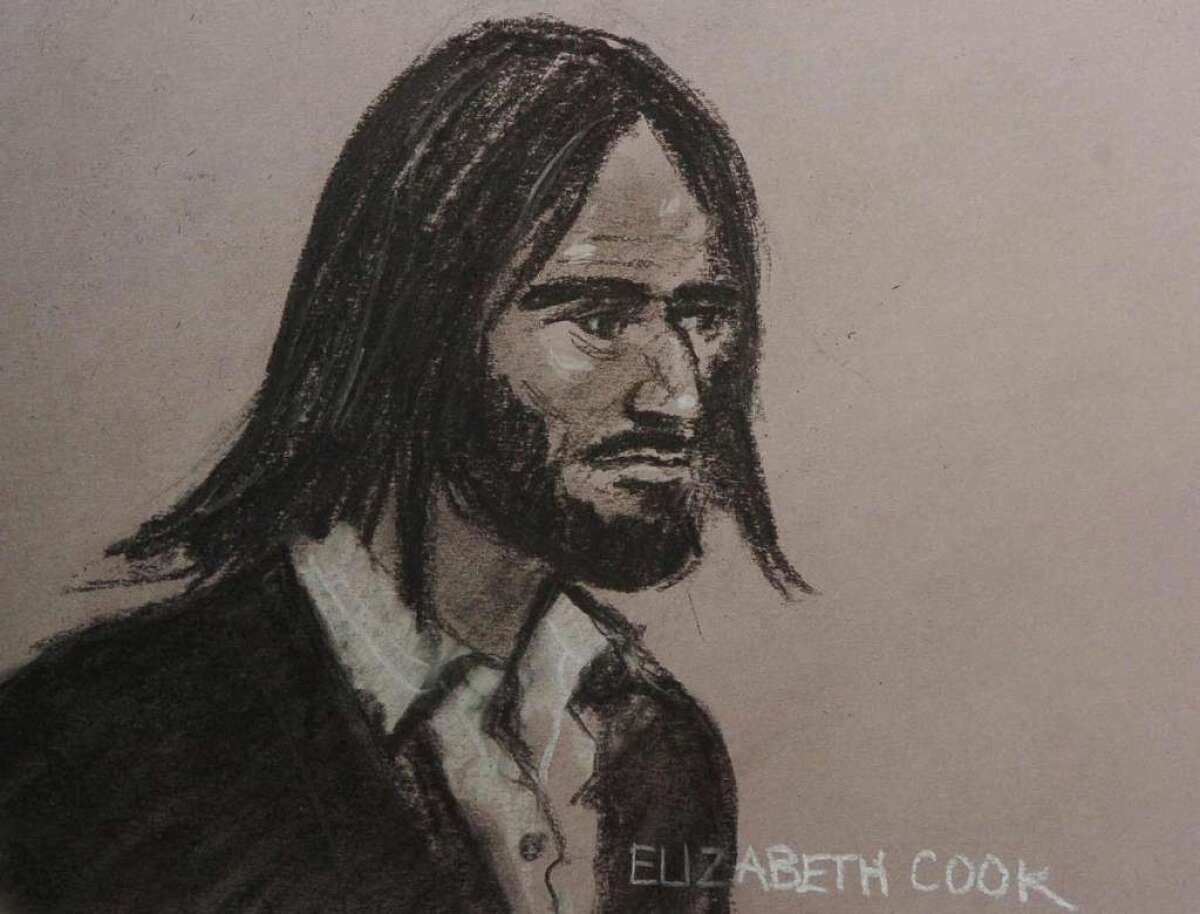Britain extradites terror suspect to New York; he pleads not guilty

It took a New York jury just a few hours to convict an Egyptian-born cleric this year on charges he tried to set up a terrorist training camp in rural Oregon, and now one of his alleged co-conspirators in the plot is on U.S. soil after being extradited from Britain.
Fifteen years after prosecutors say Haroon Aswat got involved in the plot, the 40-year-old British citizen pleaded not guilty in federal court in Manhattan on Tuesday to charges that include providing material support to terrorists and conspiring to provide material support to Al Qaeda.
Aswat’s extradition sets the stage for another major terrorism trial in New York City civilian courts, where two already have wrapped up this year. In May, a jury convicted cleric Abu Hamza Masri, also known as Mustafa Kamel Mustafa, in connection with the Oregon plot.
Masri’s conviction also included involvement in the abduction of Western tourists in Yemen in 1998. He has not yet been sentenced.
Last month, a judge sentenced the son-in-law of Osama bin Laden, Sulaiman abu Ghaith, to life in prison after his conviction in March in a closely watched New York trial. Abu Ghaith was a spokesman for Al Qaeda after the Sept. 11, 2001, attacks, and he was convicted of using his role in the organization as a platform for conspiring to kill Americans and providing material support to terrorists.
Advocates of moving high-profile terrorism suspects to civilian courts and out of the backlogged U.S. military prison at Guantanamo Bay, Cuba, have pointed to the Abu Ghaith and Mustafa trials as evidence that justice can be swift, even in cases that arouse post-Sept. 11 passions.
Aswat is not accused of involvement in those attacks, but prosecutors say he was a key figure in trying to bolster Al Qaeda in 1999, when they allege he joined Mustafa and several other men in setting up a terrorist training camp in the Oregon town of Bly.
They chose the site in part because they thought it “looks just like Afghanistan,” prosecutors said.
Investigators began searching for Aswat after the discovery in 2002 of a ledger in an Al Qaeda safehouse in Pakistan that had been used by the alleged mastermind of the Sept. 11 attacks, Khalid Shaikh Mohammed. The ledger included names of Al Qaeda associates, including Aswat, prosecutors said.
Aswat was arrested in Zambia, in southern Africa, in 2005 and was sent from there to Britain. British authorities agreed last month to his extradition after receiving assurances he would receive treatment in the United States for paranoid schizophrenia.
If convicted of all the charges against him, prosecutors said, Aswat could face more than 30 years in prison.
Follow @TinaSusman for national news
More to Read
Start your day right
Sign up for Essential California for news, features and recommendations from the L.A. Times and beyond in your inbox six days a week.
You may occasionally receive promotional content from the Los Angeles Times.







